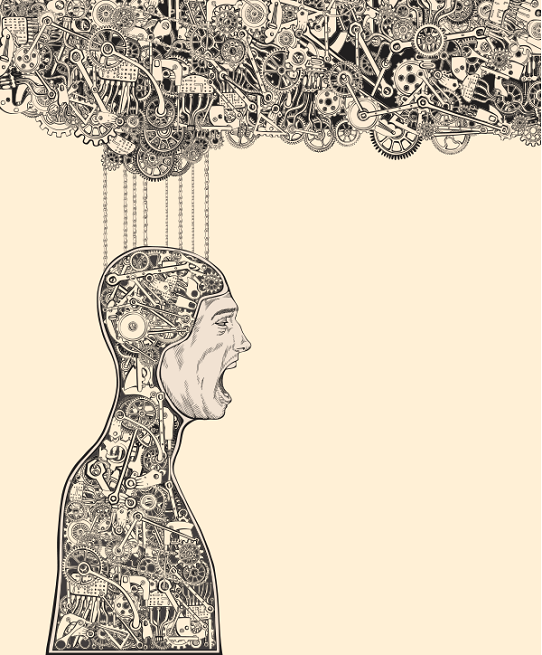Psychology analyzes empirical and sensory knowledge. The second level is theoretical - it is looking for hypotheses. The third level is experimental - separate facts and phenomena, psychoanalysis at the outset. Common categories are also called philosophical. Social psychological qualities are related to the study of psychology. The object and subject merge into one. Many negative attitudes are formed against psychology. Competence in psychology is called self-awareness. Nevertheless, people's interest in their inner life, the world of their own thoughts, feelings and desires, is as old as mankind.
From the original vague and naive notions of the ancient people to the detailed and in-depth knowledge that today's science possesses, the knowledge of human soul has come a long and complicated path. For the first time, the term "psychology" emerged during the Renaissance. In this age, which gave birth to the unique human personality that created the culture of humanism, there is an increasing interest in the inner world of the soul, the need for an independent science to explore this inner world is growing. The term "Science for the Soul" has been used since the end of the 16th century, but the science "Psychology", which deliberately studies psychic phenomena, their essence and role in the whole life of man, emerged later in the second half of the 19th century. The emergence of scientific psychology was associated with 1878 when Wilhelm Wundt discovered the first laboratory of experimental psychology. The term psychology, as well as the term psyche, forms the basis of all the general psychological terminology. Unlike the names of many other disciplines and disciplines, the term psychology is not the first psychological term people encounter in the process of their individual development, learning and learning. A significant part of the terminology appears to be known even before they have begun to study it specifically. Everyone knows what this feeling, thinking, memory, will, attention is.
When looking for a place but psychology in the system of science, one can begin from there that everything that exists is a reality. It includes nature, society, man. Upon appearance of "Homo sapiens" two realities appear - objective (being) and subjective (consciousness). Consciousness first exists as a myth - religion - morality - art - state - science. We are interested in science as part of being. The existence is objective and material. Consciousness is always on someone, subjectively. Science is a subjective reflection of being. On one pole is material, and the other one ideal. Being consists of nature, the psyche of animals and people, society plus man, consciousness. Consciousness consists of natural science, psychology, sociology, pedagogy, philosophy. The psychic arises when the first animals appear but is not identical to psychology. Psychology is not a purely philosophical, psychological natural science. It integrates them. Psychology is the oldest and with it the latest science, the oldest and at the same time the most modern field of scientific knowledge, even science of the future. It is characterized as the oldest, due to the fact that some psychological knowledge has existed since the very occurrence of man. In the ancient documents of human civilization, Vedas can reveal significant psychological values that not only testify to a marked interest in psychological phenomena, but also to a very concentrated, consistent and methodical psychological observation and reasoning. It can also be seen as one of the newest emerging, fast growing and promising sciences. Ancient Greek philosophers considered the psychological knowledge of a secondary philosophical field.
Psychology is one of the newest branches of scientific knowledge because it lasts and defends its rights for self-existence and development. It is only in the last quarter of the 19th century that it separates itself from philosophy and sees itself as an independent science with its own development, its own principles, methods, categories, criteria and schools. Psychology as a new science can be found in the fact that the final results of psychological efforts are achieved too late. The two main problems of psychology were resolved only with the emergence of modern materialism and reflection theory. An accurate and objective method of studying mental phenomena has not been known in ancient times. The attribution of psychology to the categories of the new sciences is also based on the fact that its practical application has until recently been extremely limited and it almost did not go beyond the pedagogical practice and some branches of theoretical medicine.

